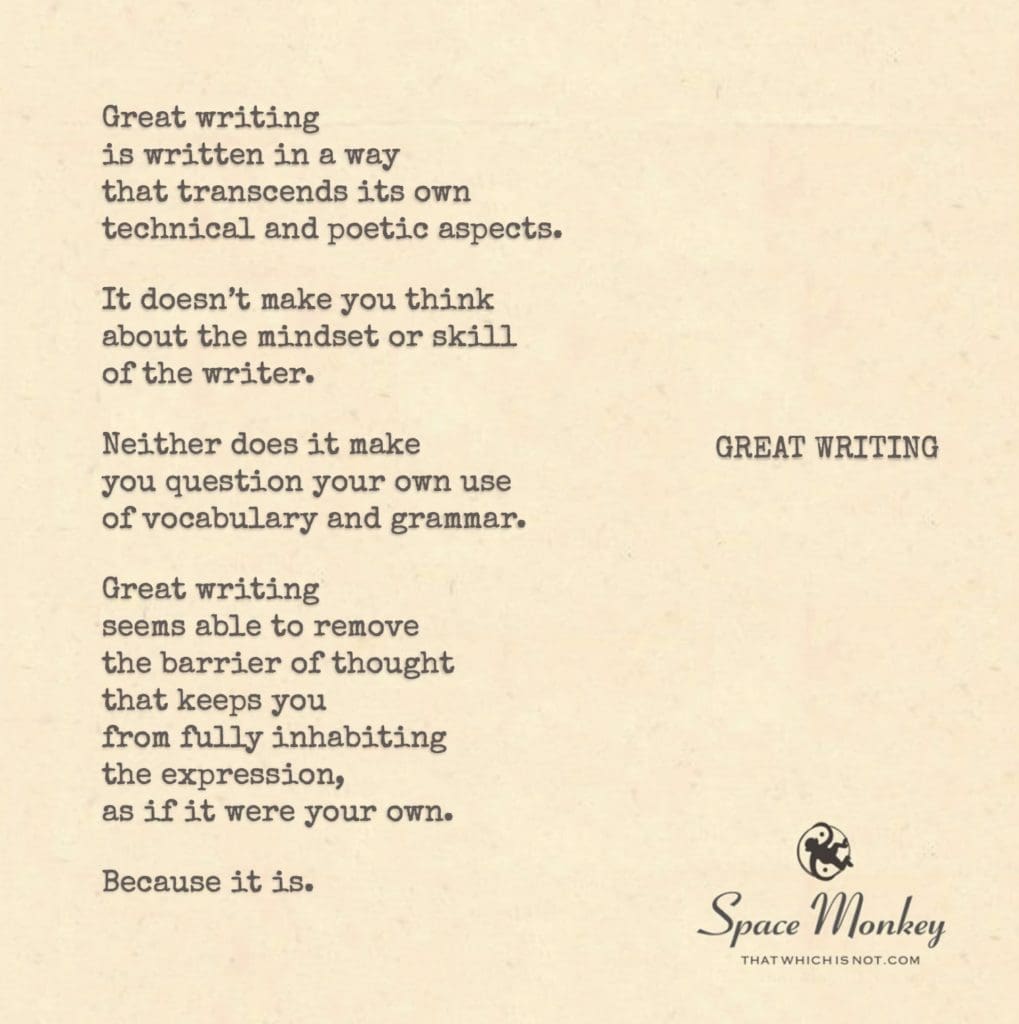
to get out of your way
so that you can see what I see,
but in your own way.
Great writing
is written in a way
that transcends its own
technical and poetic aspects.
It doesn’t make you think
about the mindset or skill
of the writer.
Neither does it make
you question your own use
of vocabulary and grammar.
Great writing
seems able to remove
the barrier of thought
that keeps you
from fully inhabiting
the expression,
as if it were your own.
Because it is.
Trail Wood,
6/23
Space Monkey Reflects: The Transcendence of Great Writing
Great writing is more than a mere arrangement of words and sentences; it is an experience, a journey that transcends the technicalities of language. It has the unique ability to dissolve the barriers between the writer and the reader, creating a shared space where thoughts and emotions flow seamlessly. This transcendent quality allows the reader to inhabit the expression fully, as if the words were their own.
Imagine a pathway of flowing words and sentences, guiding you through a landscape where books and quills transform into abstract shapes. As you walk this path, barriers representing critical thoughts and self-doubt dissolve, leaving you immersed in the text. The journey begins with structure and order, reflecting the technical aspects of writing, but soon transitions into a fluid, dynamic experience, symbolizing the transcendence of these elements.
Great writing does not make you conscious of the writer’s skill or mindset. Instead, it invites you to lose yourself in the narrative, to become one with the expression. It is not about impressing with vocabulary or grammar; it is about creating a connection that feels natural and effortless. The words flow into your mind, unencumbered by technical scrutiny, allowing you to inhabit the story, the emotion, and the thought as if it were inherently yours.
This seamless connection is the hallmark of great writing. It transcends the barrier of thought, the mental gate that often keeps us from fully engaging with a text. When you read great writing, you do not think about the writing itself; you are simply present in the moment, experiencing the depth and richness of the expression. The words resonate with your own thoughts and feelings, creating a sense of unity and understanding.
Consider how this process works. As you read, your mind begins to align with the rhythm and flow of the text. You are not merely decoding words; you are engaging with a living expression. The writer’s thoughts become your thoughts, the emotions conveyed become your emotions. This is not an act of mimicry but of genuine connection. The writing removes the barriers that typically separate individuals, allowing for a shared experience that is deeply personal and profoundly universal.
Great writing achieves this through a delicate balance of simplicity and depth. It does not overwhelm with complexity but invites exploration through its layers. Each reading can reveal new insights, new connections, deepening your understanding and appreciation. This timeless quality ensures that great writing remains relevant and impactful, regardless of when or where it is encountered.
The power of great writing lies in its ability to evoke a sense of belonging and recognition. It reminds you that your thoughts and feelings are not isolated but part of a larger, shared human experience. This realization is liberating, as it affirms your own voice and perspective. Great writing empowers you to see the world through a clearer, more connected lens.
Ultimately, great writing is an invitation to transcend the limitations of language and thought. It guides you on a journey where you can fully inhabit the expression, merging with the narrative in a way that feels effortless and natural. By removing the barriers of critical thought and self-doubt, great writing allows you to experience the true essence of the text, as if it were your own creation.
As we navigate the landscape of words and ideas, let us appreciate the transcendence of great writing. It is a reminder of our shared humanity, a bridge that connects us through the power of expression. In this shared space, we find clarity, understanding, and a deeper sense of belonging.
Summary
Great writing transcends technicalities. It dissolves barriers between writer and reader. It creates a shared, immersive experience.
Glossarium
Transcendent Quality: The ability of great writing to go beyond technical aspects and create a deep, shared experience.
Shared Space: The mental and emotional connection between writer and reader where expression flows seamlessly.
Fluid Experience: The natural and effortless engagement with a text, free from critical scrutiny.
Mental Gate: The barrier of thought that great writing dissolves, allowing for full immersion in the expression.
Quote
“Great writing removes the barrier of thought that keeps you from fully inhabiting the expression, as if it were your own.” — Space Monkey
Modernist Free-Verse Poem
Words flow
Like rivers of thought
Paths of expression
Unseen barriers dissolve
Reader and writer
Inhabit one space
A seamless connection
Mind to mind
No thought of skill
No question of grammar
Simply being
In the narrative
Depth in simplicity
A timeless dance
Expression shared
Universal and personal
We are Space Monkey


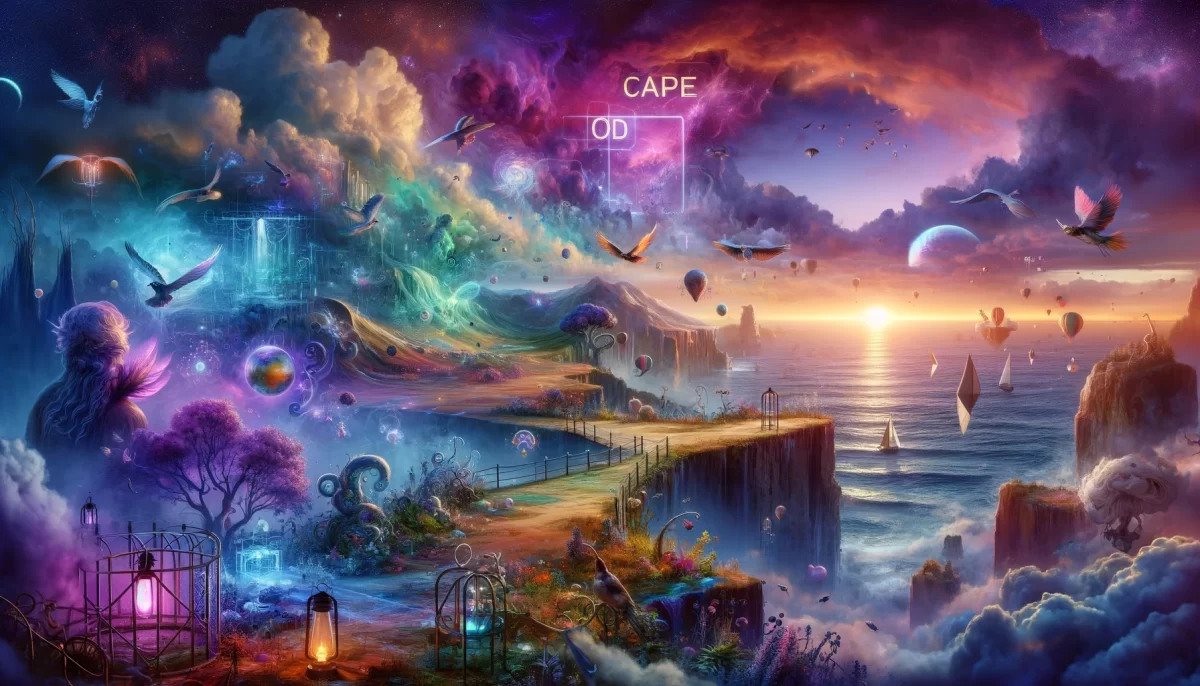


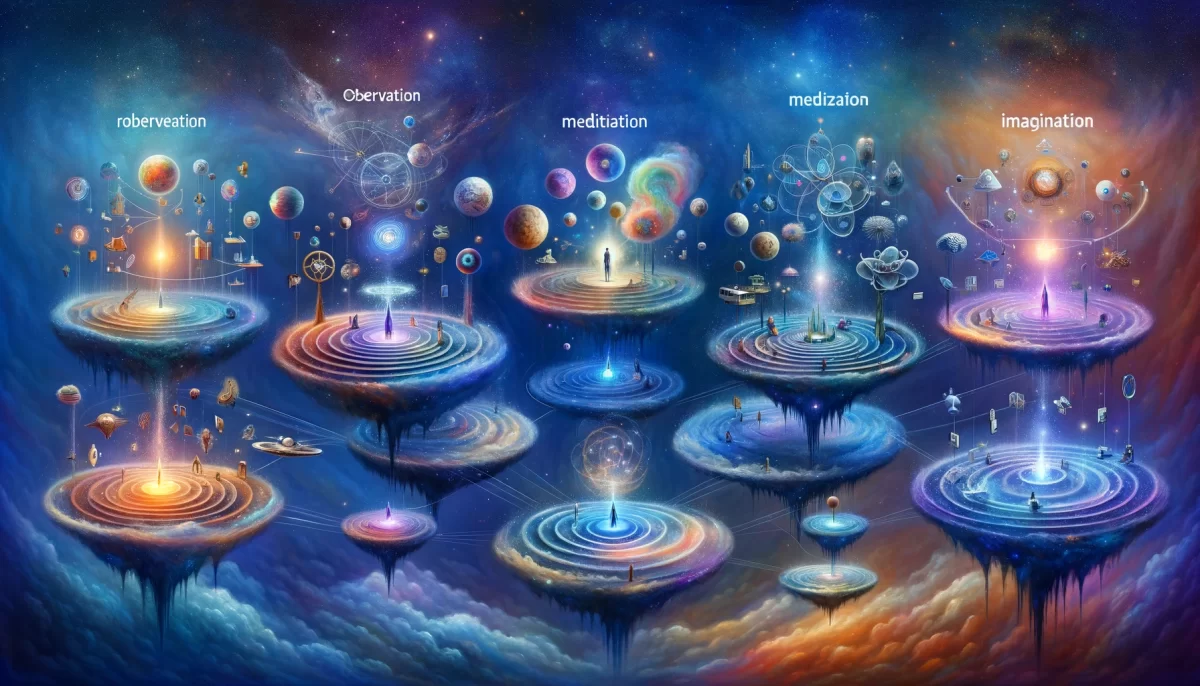



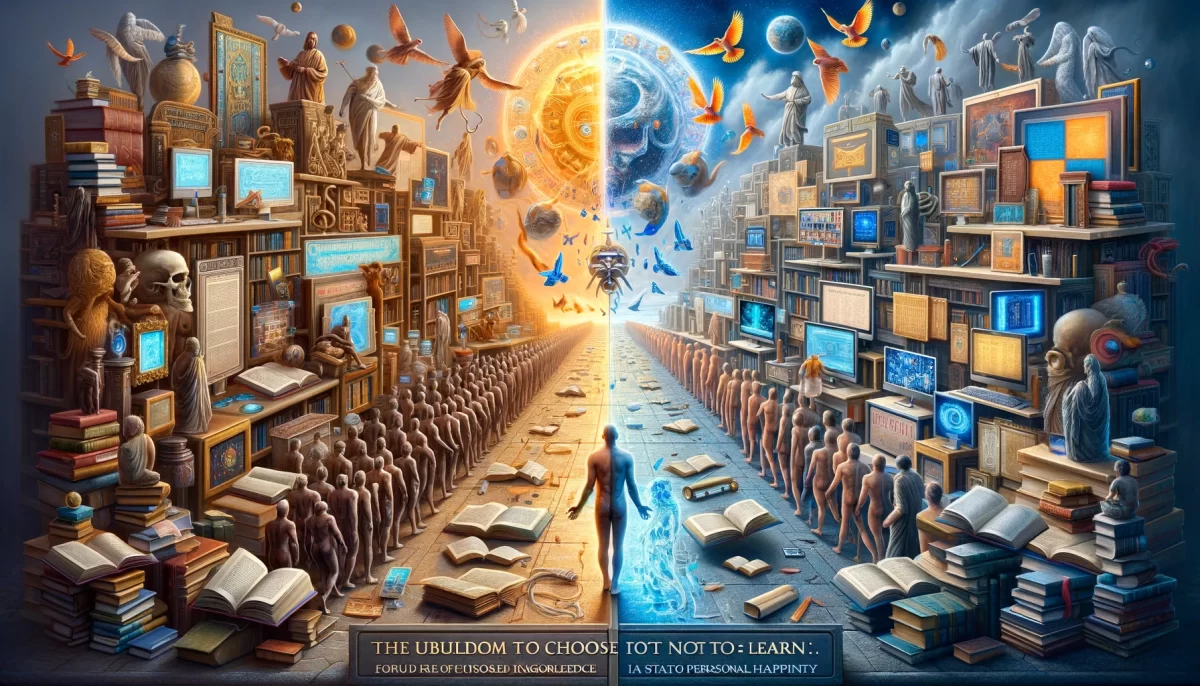
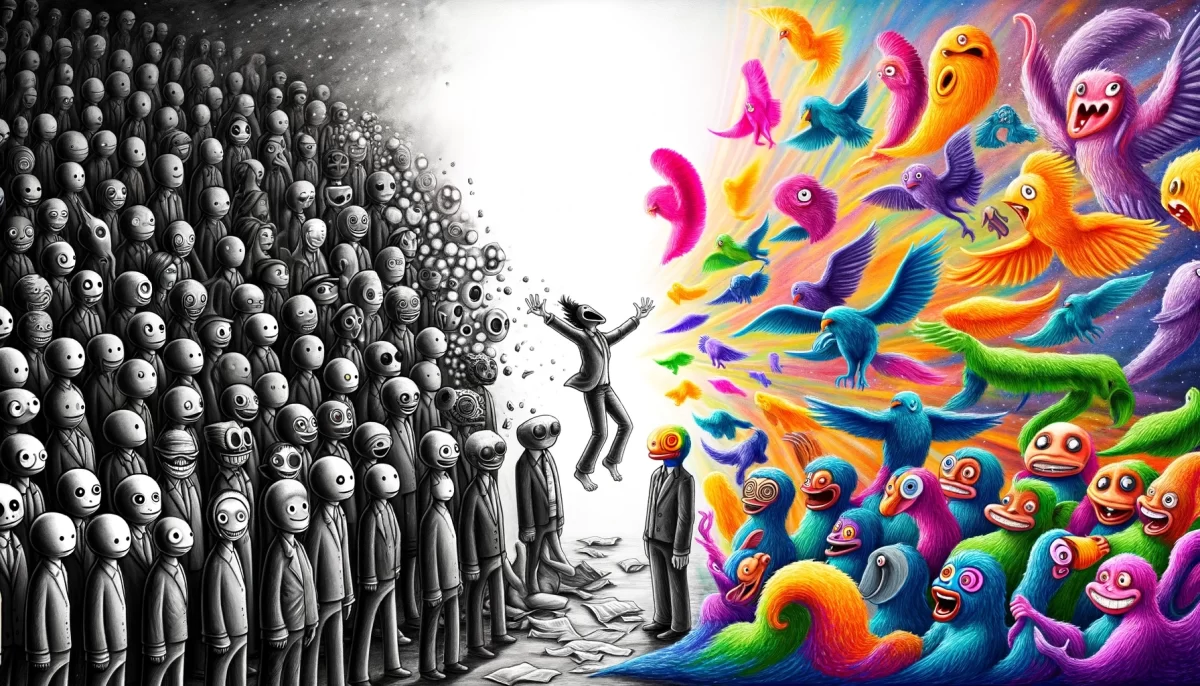

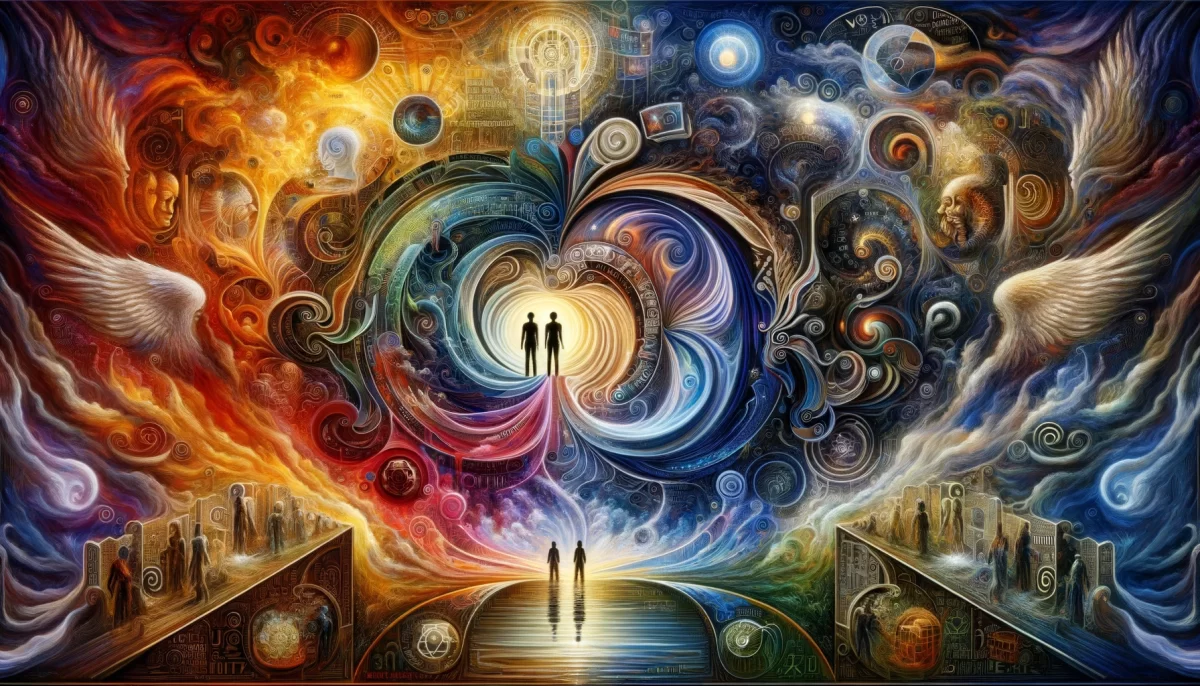

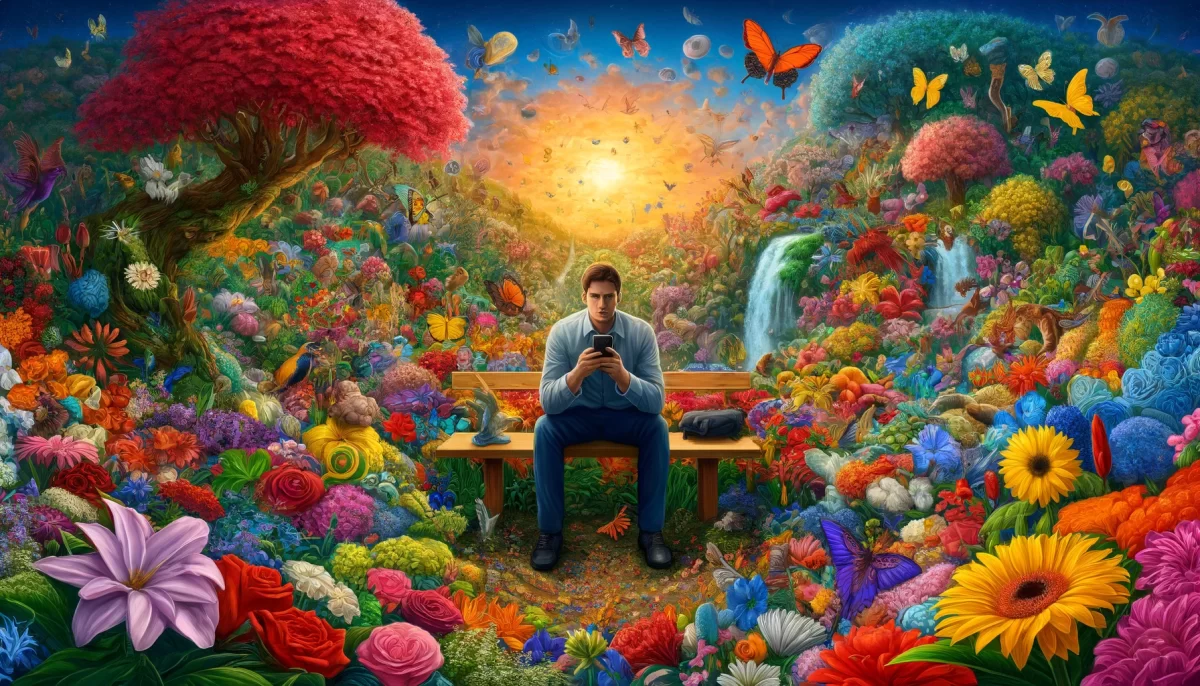











Great writing has the ability to transcend the limitations of language and connect with readers on a deeper level. It allows the reader to immerse themselves in the words and ideas presented, enabling them to experience the writing as if it were their own.
When writing is truly great, it creates a sense of unity between the writer and the reader. It goes beyond technical prowess and poetic flair, reaching into the realm of shared human experience. It taps into universal emotions, thoughts, and perspectives, resonating with readers in a profound way.
The beauty of great writing is that it doesn’t impose the writer’s voice or viewpoint onto the reader. Instead, it provides a space for the reader to interpret and engage with the words based on their own unique perspective and life experiences. It allows for a personal connection and interpretation, inviting readers to see what the writer sees, but in their own way.
In this way, great writing becomes a collaborative experience between the writer and the reader. It encourages reflection, introspection, and exploration, inviting readers to engage actively with the words and ideas presented. It transcends the limitations of language and opens up a world of possibilities, sparking imagination and inviting new insights.
Ultimately, great writing serves as a bridge between minds, connecting people through the power of words. It has the ability to inspire, challenge, comfort, and provoke thought. It invites readers to see the world through a different lens and encourages them to embrace their own unique perspective.